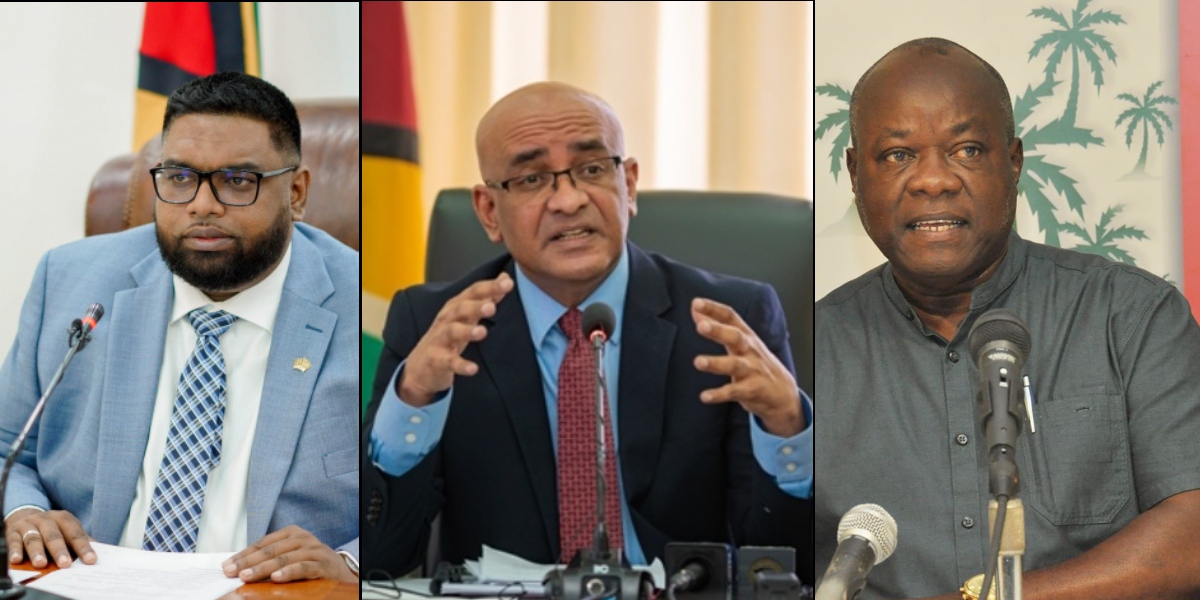For shared governance to be achieved at the executive level, political actors must first share common values and trust, says the country’s Vice-President, Bharrat Jagdeo. Without these prerequisites, the former President noted that gridlock is inevitable. Jagdeo was at the time speaking at a press conference at his People’s Progressive Party/Civic (PPP/C) headquarters, Freedom House on Thursday.
EXECUTIVE LEVEL
While registering his willingness to entertain talks about executive power-sharing, Jagdeo noted that all sides must be on the same page. He characterised the stalemate between the government and the opposition in appointing constitutional office-bearers as a defect of power-sharing that could affect the Cabinet’s ability to function as a cohesive unit.
“If you can’t share a set of common values if you believe in stealing elections and we don’t, then we can’t get along. If you don’t share economic values and other social values or patriotism, or if you’re racist, then you can’t work with us. You have to share common values for that to work or you bring the same gridlock into the Cabinet and nothing happens. We’ve seen it. It has stymied progress in many countries,” Jagdeo emphasised.
While he spoke about the importance of “building trust” before any steps are taken to achieve executive power-sharing, the VP said that he is not convinced that the main parliamentary opposition, the A Partnership for National Unity + Alliance for Change (APNU+AFC) is willing to go the extra mile.
“Only after that period of building trust you can have that happen, but there is no building trust. In fact, we are going further part because every day APNU pushes one agenda – racism. But we’re open to that [power-sharing] because we said in our manifesto that when the Constitutional Reform is in place and the consultations begin, we’re open to anything once it has resonance with the people,” he said.
PARLIAMENTARY LEVEL
While the current model may suggest that one party rules all, the former Head of State noted that significant constitutional changes were made to include members from opposition parties to be part of governance at the legislative/parliamentary level. These changes, he noted, are often overlooked by analysts and political commentators in their advancement of a power-sharing model.
“There was a different type of constitution versus the one we have today. Under the Burnham constitution, the parliament was managed by the party in power with the speaker. In the new constitution, we have a Parliamentary Management Committee with five persons on both sides and the Speaker [of the National Assembly] chairs it. So, that’s the first feature of the constitution that I signed into law in the early 2000s. So, that changed radically the way parliament is now governed,” Jagdeo said.
He noted that the Parliamentary Standing Committees are also comprised of both government and opposition Members of Parliament, all of whom, have a say in the direction of the respective sectors namely: Social Services, Economic Service, Foreign Affairs and Natural Resources. The VP said that two of the four Committees are chaired by opposition legislators.
He also made reference to the introduction of five rights commissions during his tenure as President. These bodies were birthed via support from two-thirds of the National Assembly’s membership – another example of inclusivity – and have powers of sanction over the Executive branch.
He added that the aforementioned features introduced and ratified by successive PPP/C governments make the Guyana Constitution, perhaps the only one in the Commonwealth with mechanisms at the parliamentary level geared at siphoning and sharing power that is otherwise, wielded solely by ruling parties in other jurisdictions, including the United States of America.
“I can go on and on. There are about eight or nine other features. These are all to promote inclusive governance, but nobody is satisfied with that although we have gone beyond most countries in the world to put in place this system for inclusive governance,” he noted.











